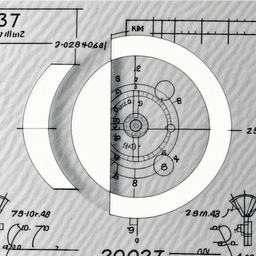Synthetic Diarrhea Etiology Dataset
Patient Health Records & Digital Health
Related Searches
Trusted By




"No reviews yet"
£199.99
About
The Synthetic Diarrhea Etiology Dataset is a comprehensive, anonymized dataset created for educational and research purposes. It simulates pediatric clinical records related to diarrhea episodes, collected across different locations and times. The dataset supports analysis of symptom progression, clinical signs, treatment practices, and socio-environmental conditions related to diarrhea etiology and outcomes.
Dataset Features
- Study ID: Unique identifier for each patient.
- Admit Date & Time: Timestamp of hospital admission.
- Gender: Biological sex of the patient (Male/Female).
- Age (Months): Patient age in months.
- Diarrhea Hours/Days/Episodes: Duration and frequency of diarrhea symptoms.
- Nurse Name & Exam Time: Attending nurse and examination timestamp.
- Vital Signs: Temperature, respiration rate.
- Stool & Symptom Reporting: Observations and reports of blood in stool, fever, vomiting, and breastfeeding status.
- Anthropometrics: Height and mid-upper arm circumference (MUAC).
- Seasonality: Time of year when case occurred.
- Patient Status: Classification codes for patient condition.
- % Viral: Estimated viral etiology percentage.
- Socioeconomic Indicators: Parent education levels, household income, number of people at home, shared pot use.
- Medications: Usage and type of medication administered.
- Stool Sample Collection: Time, date, and location of sample collection.
Distribution

Usage
This dataset can be used for:
- Epidemiological Research: Explore the relationships between demographic, environmental, and clinical factors affecting diarrhea in children.
- Predictive Modelling: Build models to predict symptom severity, etiology (viral vs. bacterial), or recovery time.
- Clinical Insights: Analyse symptom presentation, vital signs, and treatment effectiveness.
- Educational Purposes: Serve as a realistic dataset for students in global health, pediatric epidemiology, and data science.
Coverage
This synthetic dataset is fully anonymized and adheres to privacy standards. It is designed to support robust statistical and machine learning analysis without compromising personal data.
License
CC0 (Public Domain)
Who Can Use It
- Public Health Researchers: To study pediatric diarrhea patterns and intervention impacts.
- Medical and Clinical Practitioners: To understand how vital signs and symptoms relate to diagnosis and treatment.
- Data Scientists and Machine Learning Experts: To experiment with clinical classification and prediction tasks.
- Students and Educators: As a case study in health informatics, biostatistics, and data-driven public health strategies.
